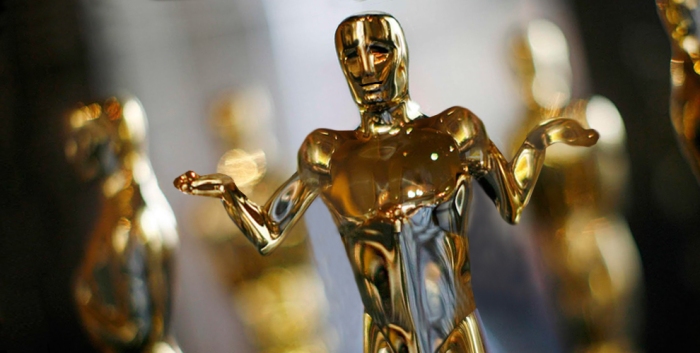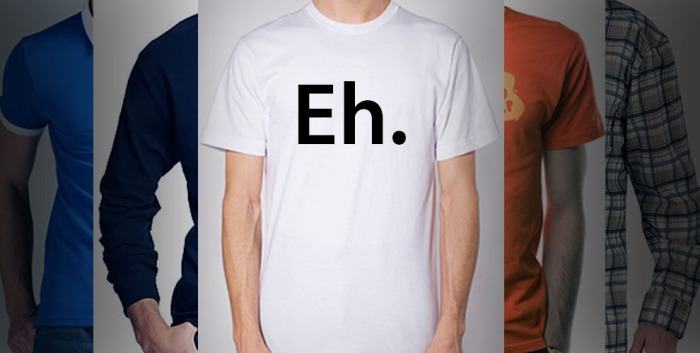
It’s that time of year again: when people come together to talk about what some famous actresses wore—who wore it best—oh, and which film won Best Picture. Probably something artsy and serious. Sometimes it’s deserved—a film of true excellence and craftsmanship in writing, acting, and directing. But usually it’s just a film that you may or may not have seen. (I don’t know about you, but I’ve gotten to the point where I’ve decided all serious dramas will be relegated to DVD viewing—‘cause, you know: why do I need to see talking faces on a big screen?) Also, movie prices are astronomical, so—okay, I see it: I’m part of the cycle and why Hollywood is nickel and diming every potential film that passes through their gates in the hopes of production. No wonder they’re settling for the bottom line so often—a “sure” thing (read: sequel, prequel, or remake of something that did legitimate business once). But I digress.
Anyway, it’s the Oscars again. And of second most importance, it is 2017. I make a point of the year because frankly, I don’t believe the Oscars are nor have been the same for a long time now.
I often wonder what my younger doppelganger today would think of this Hollywood pastime now. What do young, budding (okay, and gay!) dreamers like me today think of this rapidly declining tradition of awarding the “Best” in Motion Pictures Arts and Sciences?
Cut to: me in the early 1990s. Maybe because things often look better in retrospect or I just didn’t know any better because I was a kid, but: the Oscars felt like they meant something back then. The five, count ‘em, just five nominated films for Best Picture (more on the topic of that category being expanded to ten nominations later) really felt like they earned that coveted spot. Each film that was nominated felt special, and it was usually a tight race that was more or less about merit and not just politicking by studios and adhering to social trends of the day.
Culturally, budding gay—I mean, budding dreamers of all stripes only had a few outlets to view their favorite stars back then: People magazine, and “Entertainment Tonight”. Which meant we were primed and hungry to see all these stars convene on one epic night—a smorgasbord of glamour, glitz, and at least to an idealistic kid like me back then: talent!
The Oscars have been cheekily dubbed “The Superbowl for Women”—in terms of annual cultural impact and significance. But unlike the actual Superbowl, the Oscars have been morphing and changing notably, and gradually eclipsed by other smaller Superbowls in the past two decades.
In the age of Twitter, TMZ, and the E! Channel, we can literally follow our favorite stars online 24/7 to see what they ate for breakfast or what color their kids’ poop is; spy on them as they exit an airport terminal via shaky video footage, or consume their daily lives in a craftily executed weekly reality TV show.
With these enlightening options that we’ve been blessed with through technical progress, the mystery of what it means to be rich and famous and talented has become rote and accessible in ways never before imaginable.
I have a feeling my teenage doppelganger today would view the Oscars the same way I viewed silent films or drive-in movie theaters when I was a teen in the 1990s.
Perhaps in response to this changing culture (read: poorer ratings for the telecast—undoubtedly due to the Academy’s penchant for nominating “serious” films that don’t do much business at the box office)—the category for Best Picture was expanded to include up to ten nominees, in 2009. The Academy claimed this was a throwback to the early years in the 1930s and ‘40s, where there were up to ten nominees per year—but many cynical observers assumed it was a blatant attempt to nab more viewers for the annual show. The quip “Are there even ten films worthy of being nominated every year?” hit the web quicker than you could say ‘Action!’. Incidentally, the Oscars suffered its lowest TV ratings ever the previous year, so read into the subsequent change however way you want.
As I alluded to earlier, I could relate to the criticism on the merit of today’s films—let alone their worthiness of being nominated for such an honor. In our current cinematic climate, I think the cap of five nominees is/should’ve been more relevant than ever—an elite prestige worth striving for, artistically.
Nearly a decade later, the expansion of nominees hasn’t made a mark on me as an Oscar viewer or a movie fan. If anything, it makes it harder for me to remember what films were nominated each year—but that could be more of a reflection on my waning interest for the show altogether.
In 2016, the Academy was confronted with yet another issue—this time one of moral. The lack of diverse nominees that year spurred a boycott by many African-American artists and viewers, who claimed a racial bias against them. Although I understood the greater issue of diversity, as a minority myself even I had reservations about the campaign. Was the Academy biased, or were there simply no quality films that year that starred African-Americans (or other ethnic groups)? If it was the latter, for instance—the issue wasn’t the Academy, but the movie industry itself.
Nonetheless, in true form, the Academy reacted swiftly with their image in mind—claiming they would add a significant amount of women and people of color to their voting bloc. The validity of this gesture aside, the consequence of this detrimental publicity also left a viewer like me wondering how sincere future nominations would be. As well intentioned as the campaign was to shed light on the Oscars’ lack of diversity, the fallout could be that they might overcompensate and recognize films (not people, mind you) of lesser merit to meet political correctness.
This shifting of objectives and influences only aided the rapidly declining relevance of the Oscars in my eyes. It was not about simply awarding the best films anymore—but a commercial and social experiment gone awry.
But this was nothing new overall: the Oscars have always been about more than just the merit of moviemaking, of course.
I turned eighteen when the world entered a new millennium in 2000, and the year “American Beauty” won against a highly publicized award campaign for its chief rival nominee that year, “The Cider House Rules”. Maybe because I’d technically became an adult and therefore achieved full enlightenment at last, but the fact that a movie studio launched a publicity campaign to swarm voters to choose their film was not lost on me. Apparently, voters don’t just go into hibernation and pick winners, then emerge back into the real world alive and rejuvenated by the purity of their choices.
The validity of their choices has often been debated for other reasons as well: awarding an actor or director for their current, less stellar work simply to acknowledge their greater body of work is another common longstanding ploy.
That being said, it’s safe to say that the curtain has finally gone down on my love affair with the Oscars. Honestly, the last few years I’ve been less and less drawn to the extravaganza. As late as 2013, I still recall having a few vestiges of excitement that I’d had in my youth—feeling like I was witnessing something greater than myself. But the past two years and on the eve of this year, it’s dawned on me now that the heyday of the show has long joined the past. It doesn’t detract from the merit of truly good movies, but that’s the thing: good movies and the Oscars are not the same thing, and they haven’t been for a long time.
So it’s that time of year again—when people come together to talk about what some famous actresses wore—and who wore it best. Oh, and which film won Best Picture. Exactly. That’s all it is.


